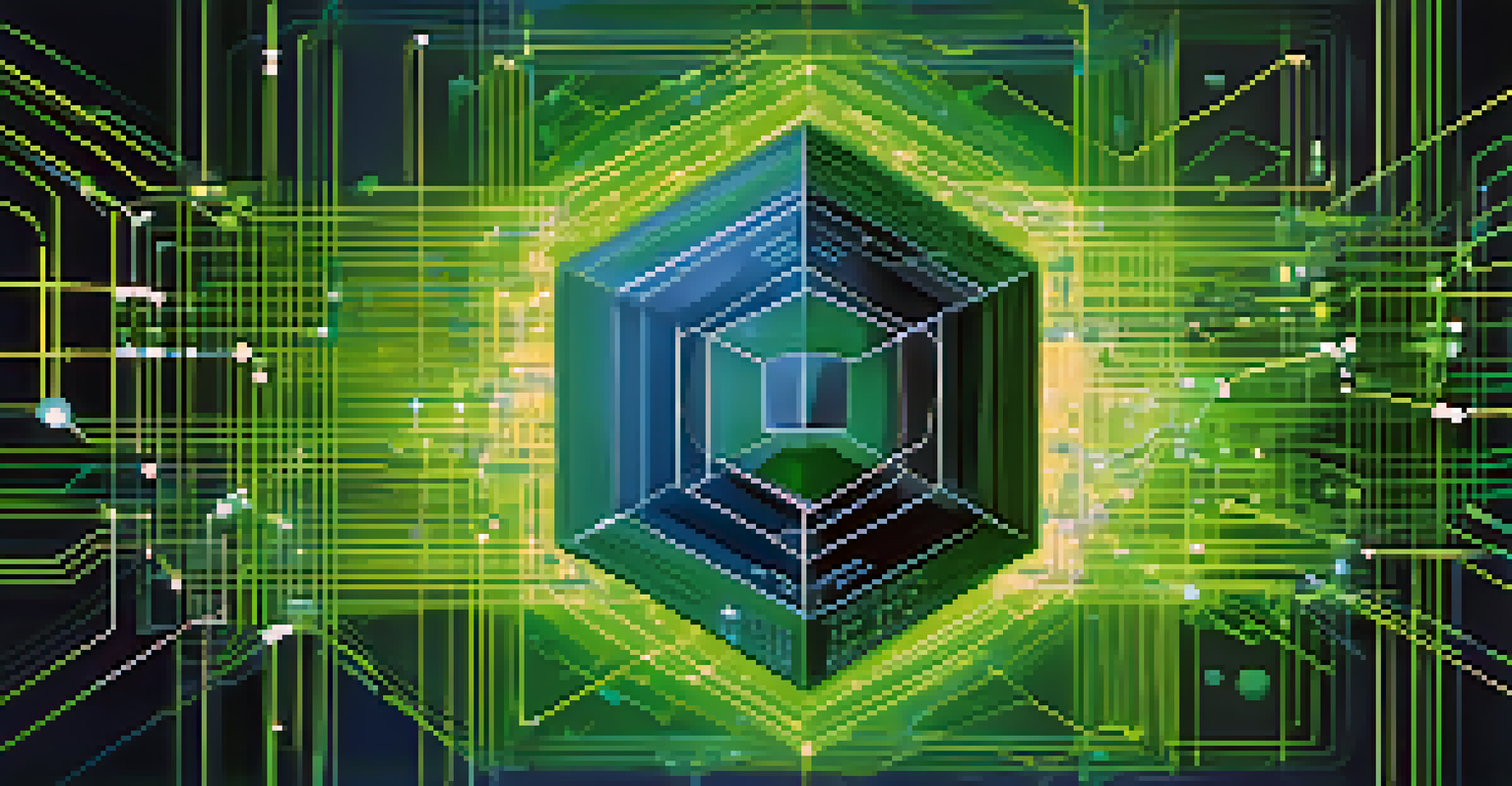Integrating Smart Contracts with Artificial Intelligence Technologies

Understanding Smart Contracts and Their Functionality
Smart contracts are self-executing agreements with the terms directly written into code. They operate on blockchain technology, ensuring transparency and security without the need for intermediaries. For example, if two parties agree to a transaction, the smart contract automatically executes once the conditions are met, streamlining the process.
Smart contracts are like digital vending machines. They only dispense what you ask for when specific conditions are fulfilled.
These contracts are designed to minimize human intervention, reducing the chances of errors or fraud. They can be utilized in various sectors, including finance, real estate, and supply chain management, making transactions faster and more reliable. Imagine a landlord and tenant using a smart contract to automate monthly rent payments—this eliminates the hassle of late payments.
However, while smart contracts are powerful, they often lack adaptability to real-time variables. This is where integrating artificial intelligence can make a significant difference, as AI can analyze data and adjust contract terms dynamically.
The Role of Artificial Intelligence in Enhancing Smart Contracts
Artificial intelligence brings a new layer of intelligence to smart contracts, allowing them to learn from data and make decisions based on that information. By incorporating AI, smart contracts can assess risks and outcomes, tailoring their operations to specific contexts. For instance, an AI-enabled smart contract for insurance could analyze weather data to adjust payouts based on real-time conditions.

Moreover, AI can help in automating the decision-making processes within smart contracts. This means that instead of being rigid, contracts can adapt based on ongoing analyses, leading to more efficient and fair outcomes for all parties involved. Picture a smart contract for a freelance project that adjusts payment terms based on the quality of work assessed by AI.
Smart Contracts Automate Transactions
Smart contracts enable self-executing agreements that operate on blockchain, streamlining processes without intermediaries.
In essence, AI enhances the functionality of smart contracts, making them not just reactive but proactive. This evolution opens up a myriad of possibilities across industries, from finance to health care, where timely and accurate decision-making is crucial.
Use Cases: Smart Contracts and AI in Action
Real-world applications of integrating AI with smart contracts are already emerging across various sectors. In finance, for example, AI algorithms can analyze market trends and automate trading strategies through smart contracts, optimizing investments in real-time. This fusion ensures that trades are executed at the most favorable conditions, maximizing profits for investors.
Artificial intelligence is the new electricity. It has the potential to transform every industry and create enormous economic value.
In supply chain management, AI can track and predict inventory levels, allowing smart contracts to automatically reorder supplies when stock runs low. This not only streamlines operations but also ensures that businesses can respond swiftly to market demands, enhancing customer satisfaction.
Additionally, the healthcare industry is witnessing this integration through smart contracts that handle patient data securely while AI analyzes health trends. This ensures timely treatment and personalized care based on predictive analytics, ultimately leading to better health outcomes.
Challenges in Integrating AI with Smart Contracts
While the integration of AI and smart contracts offers numerous benefits, it also brings several challenges. One major concern is the complexity of coding AI algorithms within smart contracts, which can lead to vulnerabilities if not done correctly. Ensuring the integrity of both the AI and the smart contract is paramount to prevent exploitation.
Another challenge is data privacy and security. As AI relies on large datasets to function effectively, ensuring that sensitive information is protected while being used for analysis is critical. Organizations need to establish robust protocols to maintain confidentiality and comply with regulations.
AI Enhances Smart Contract Functionality
Integrating AI with smart contracts allows for real-time data analysis and adaptive decision-making, improving efficiency and accuracy.
Lastly, the legal implications of AI-driven smart contracts can be murky. Determining liability in cases where an AI makes a decision that leads to a dispute is a gray area that requires careful consideration and potentially new legal frameworks.
The Future of Smart Contracts with AI Integration
As technology continues to evolve, the future of smart contracts integrated with AI looks promising. The potential for increased automation, efficiency, and accuracy could revolutionize industries, making transactions smoother and more reliable. Organizations that adapt to this trend will likely gain a competitive edge in the marketplace.
Furthermore, advancements in machine learning and natural language processing could enable smarter contracts that better understand and process human language. This could lead to more intuitive contract creation and negotiation processes, making them accessible to a broader audience.
Ultimately, the combination of AI and smart contracts could redefine how we approach agreements, making them more adaptive and responsive to changing circumstances. This evolution will not only enhance business operations but also empower individuals to engage in seamless transactions.
Best Practices for Implementing AI-Enabled Smart Contracts
To successfully implement AI-enabled smart contracts, organizations should start with a clear understanding of their goals and requirements. Defining the specific use case and expected outcomes will help in developing tailored solutions that meet their needs. For instance, a company looking to enhance its supply chain management may focus on predictive analytics for inventory management.
Next, it's essential to ensure that the underlying data used for AI models is high-quality and relevant. Poor data can lead to inaccurate predictions and decisions, undermining the contract's effectiveness. Investing in data management and cleansing processes can significantly improve the outcomes of AI-driven contracts.
Challenges of AI and Smart Contracts
The integration of AI with smart contracts presents challenges, including complexity in coding, data privacy concerns, and legal implications.
Finally, organizations should prioritize ongoing monitoring and evaluation of their AI-enabled smart contracts. This allows them to identify issues promptly and adjust the algorithms as necessary, ensuring that the contracts remain efficient and effective over time.
Conclusion: Embracing the Integration of AI and Smart Contracts
The integration of artificial intelligence with smart contracts is not just a trend; it's a transformative shift in how we conduct agreements and transactions. By leveraging AI's capabilities, smart contracts can become more adaptable, efficient, and secure, paving the way for innovation across various sectors. This integration holds the potential to revolutionize industries and create new business models.
As organizations navigate the complexities of implementing these technologies, they must remain vigilant about the challenges and best practices discussed. Embracing this change requires a proactive approach, ensuring that the benefits far outweigh the risks involved.

Ultimately, the future of smart contracts enhanced by AI is bright, promising a world where transactions are seamless, efficient, and secure. It's an exciting time for businesses and individuals alike as we stand on the brink of this technological evolution.